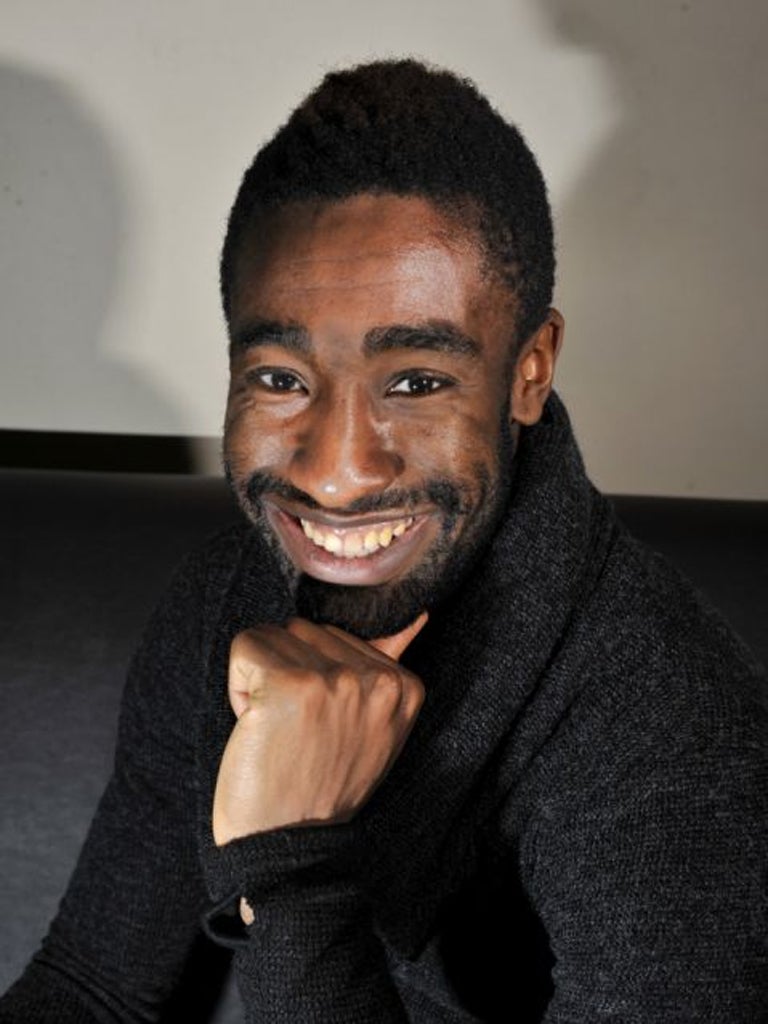'As footballers, we are still humans. I can see anybody getting depressed'
Johan Djourou was moved by Gary Speed's death. Here, he tells Sam Wallace about the pressures that afflict players and managers

Your support helps us to tell the story
From reproductive rights to climate change to Big Tech, The Independent is on the ground when the story is developing. Whether it's investigating the financials of Elon Musk's pro-Trump PAC or producing our latest documentary, 'The A Word', which shines a light on the American women fighting for reproductive rights, we know how important it is to parse out the facts from the messaging.
At such a critical moment in US history, we need reporters on the ground. Your donation allows us to keep sending journalists to speak to both sides of the story.
The Independent is trusted by Americans across the entire political spectrum. And unlike many other quality news outlets, we choose not to lock Americans out of our reporting and analysis with paywalls. We believe quality journalism should be available to everyone, paid for by those who can afford it.
Your support makes all the difference.It may come as some surprise that Johan Djourou is the longest-serving member of Arsenal's current first-team squad, a seven-year career at the club that stretches back to his debut which was made when they were still Premier League champions of England.
He has seen Patrick Vieira, Ashley Cole, Thierry Henry and Cesc Fabregas exit, and only in the last two seasons has he established himself in the first team. But he has also developed into an eloquent spokesman on the wider of issues in football.
We met near his home in north London the day after Arsenal, with Djourou (right) in the side, had lost 1-0 at home to Manchester City in the Carling Cup quarter-finals. He had plenty to say on the club's roller-coaster season, and on the future of Arsène Wenger, but it was his thoughts on the death of Gary Speed and its wider implications for football that lingered in the mind.
Djourou had watched his Switzerland team-mates in their defeat to Speed's Wales team in October and been impressed by the changes the new manager had made. The shock announcement of Speed's death on Sunday morning made Djourou ask the question: would he recognise a team-mate who had problems? And how would football in 2011 be expected to respond?
"I think, yes, I think a club would be receptive and listen and understand because today the world has become more open-minded," he says. "It is a human world. Football is a game that we are playing. I know we are under a lot of pressure but we are still human, we still have minds and hearts and we still understand that people could be ill.
"Personalities are very different. I could be totally different to you. You could be stronger than me in different things. It depends on the subject but [footballers] are under pressure a lot. Football is a thing that you play every three days. You have to win every game and you cannot perform badly because you want to win. If you perform badly you get criticised. There are always those kind of things but that is life.
"As footballers, we are still humans. I can see anybody getting depressed and having doubts and troubles and thinking about things that he could have done better. It gets into his mind. That's a normal thing. The thing about football is that you have to be strong and react for the next game.
"That is the challenge we have in football. To be under pressure? Yes. Making a mistake? Maybe. But be stronger next time. We always have this chance. But I understand that people get depression in football. It is a human world. Sometimes we forget that football is a job as well. And someone who is doing a normal job is under pressure because he wants to do well. Football is the same."
Born in the Ivory Coast, his father moved him to Switzerland when he was 17 months old and it was there in Geneva at the age of 15 that Djourou was scouted by Arsenal. He missed all of 2009-10 – save the final game of the season – with a knee injury that also cost him a place in the Swiss squad for the World Cup finals last year.
Last season he returned in the absence of the injured Thomas Vermaelen to play 37 games in all competitions and is now deputising at right-back for the injured Bacary Sagna. His longevity at Arsenal gives Djourou a perspective few others there have.
Djourou has a contract until June 2013 even if it is fair to say he has divided opinion among fans as the level of his performances can vary radically. But what does he see as the future for his manager? "I think he will stay for a long time. I don't see him going. I can't see the club without him, to be honest. He has done so well for the club and that's because he has touched every part of the club. Everything is so different since he joined: the way we play, the attitude and philosophy of the team, the way he has developed.
"In other clubs, maybe not in England, someone else [other than the manager] has the power but he has it at Arsenal."
Join our commenting forum
Join thought-provoking conversations, follow other Independent readers and see their replies
Comments